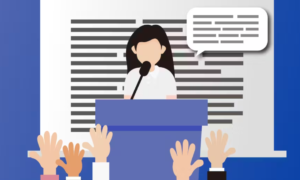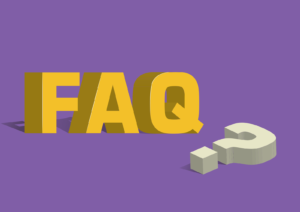
In any academic journey, the final defense of a thesis or dissertation is a significant event that marks an important milestone. A dose of nerves and anticipation frequently accompanies this defense. It represents the culmination of years of extensive work, research, and writing. However, confronting the panel can be a challenging experience. At this point, the significance of mock defense comes into play, as it serves as an essential step in the preparation process. In this blog, let’s dive into why mock defenses are crucial and how they can influence your success on the actual day.
What is Mock Dissertation Defense?
Students like you who are close to completing their thesis or dissertation should participate in a mock defense, also known as a practice defense, just before your final defense. This exercise can allow you to practice presenting your qualitative research or quantitative research findings in front of a panel similar to the official defense committee, simulating the conditions present during the defense session.
If you participate in a mock defense, you can improve your presentation skills, learn to anticipate potential questions, and receive constructive feedback in a low-pressure environment. This strategic step aims to assess your readiness and boost your confidence, ensuring that you are fully prepared to handle the actual defense with poise and professionalism.
Purpose and Structure
A mock defense is conducted to provide you with a thorough preparation for the types of questions and how they will be asked during your defense. This essential exercise serves several purposes: it familiarizes you with the structure of the defense, reduces anxiety by simulating the actual event, and provides a supportive platform for constructive feedback (Lantsoght, 2021). Here is what the structure of mock defense should look like:
- The first structure of a mock defense is the presentation. Practicing your presentation is essential for improving your delivery and timing. The mock presentation also allows you to practice managing the time allotted for your actual presentation, ensuring you cover all necessary sections within the time frame.
- The second structure of mock presentation is questioning. During the presentation, the mock panel, which could include peers, dissertation defense coaches, or faculty members, can ask you questions. Engaging in various questions allows you to hone your ability to clearly articulate complex concepts and respond appropriately to unexpected questions on the spot (Hossee, 2022).
- The third structure of mock defense is feedback. Feedback is critical because it provides insight into how well you communicate your ideas and respond to questions from the panel. According to Pahls (2015), during a mock defense, knowledgeable peers or experienced faculty members can advise on improving the clarity of argumentation and the presentation of data, as well as perfect overall delivery.
The Benefits of Mock Defenses

Preparation and Practice
Mock defenses provide an invaluable opportunity to rehearse your presentation in a setting that mimics the actual defense day. Practicing your talk helps you fine-tune your delivery, ensuring that your key points are clear and concise. You’ll also become more familiar with the flow of your presentation, reducing the likelihood of getting flustered on the big day. This repetition builds muscle memory, making it easier to stay on track and maintain your composure. Imagine how much more confident you’ll feel knowing you’ve already run through your presentation several times!
Feedback and Improvement
One of the biggest advantages of mock defenses is the feedback you receive from your mock panel. This constructive criticism is essential for identifying areas where you can improve. Maybe your slides are too cluttered, or perhaps you tend to rush through important sections. By getting this feedback early, you can make the necessary adjustments well before D-Day. It’s much better to learn about these issues in a practice session than during the real defense when the stakes are high.
Building Confidence
Confidence is key when defending your work, and mock defenses are a great way to build it. According to Pahls (2015), the more you practice in a simulated environment, the more comfortable you will become with the format and expectations. Over time, this familiarity translates into confidence, helping you present your research with authority and poise. When you walk into the actual defense, you’ll feel less like you’re entering uncharted territory and more like you’re stepping onto a familiar stage. This boost in confidence can make all the difference in delivering a compelling defense.
Identifying Weaknesses
Mock defenses are an excellent tool for uncovering any weaknesses in your argument or presentation. During these sessions, your mock panel will ask questions and challenge your assumptions, much like your actual committee. This process helps you identify any research gaps in your knowledge or logical inconsistencies in your argument (Lantsoght, 2021). Once you know where your weak points are, you can address them head-on, either by strengthening your argument or preparing better responses. This proactive approach ensures that you’re not caught off guard during the real defense.
Time Management
Managing your time effectively is crucial during your defense, and mock defenses help you practice this skill. During your practice sessions, you’ll get a feel for how long each part of your presentation takes, allowing you to make necessary adjustments. This is especially important if your defense has strict time limits. Lantsoght (2021) noted that, by rehearsing, you can ensure that you allocate enough time to cover all your key points without rushing or dragging on. Effective time management not only makes your presentation more professional but also leaves a positive impression on your committee.
Preparing for a Mock Defense

A component of the mock defense is the inclusion of procedures similar to the actual atmosphere you will experience when defending your thesis or dissertation. The purpose of the mock is to ensure that it is as close to reality as possible while also providing you with the opportunity for a general rehearsal that will improve your preparation and confidence. Please take the following steps to prepare effectively:
Assemble Your Panel: To effectively prepare for your dissertation defense, you must first select a group that can accurately simulate the dynamics of the actual defense panel in which you will participate. This could include faculty advisors, other graduate students, or even professionals in your field of study, such as experienced thesis consultants. To ensure that your work is beneficial, invite a panelist who will provide diverse perspectives and feedback. When you select panel members from various disciplinary backgrounds to focus on different aspects of a thesis, you ensure that your research is adequately challenged and examined in a manner similar to the defense scenario.
Furthermore, this allows you to improve your thesis development and presentation skills with professional and critical feedback from various sources (Chen, 2011). This strategy emphasizes the importance of receiving feedback and reflecting on how others may perceive your project when determining how to make a powerful final edit to your actual presentation.
Anticipate Questions: Taking notes on the questions you expect the panel to ask is another important step in maximizing your preparation. Reaching out to an academic advisor or peers who have recently completed similar defenses can help you identify common questions. Furthermore, if you need dissertation help, consider the expertise of a dissertation coach who can provide specialized advice on the dynamics of investigation questions. Ensure that your responses demonstrate the rationale and merit of the research decisions you made and the significance of your findings.
Practice Your Presentation: Reading through the presentation multiple times can help you improve your time management skills and the natural flow of words. This improves time management by accounting for every minute of the presentation, eliminating unexpected last-minute rushes and awkward silences (Pahls, 2015). It is also recommended that you record your sessions or practice your speech in front of a mirror to improve your delivery. This allows you to carefully observe your body language and delivery and make necessary adjustments.
Viewing these reactions may reveal other unconsciously used mannerisms that detract from the content of your research. These mannerisms include excessive hand gestures and avoiding eye contact. Consistent repetition of these practices can help you develop self-confidence and the ability to present a remarkable version of yourself to both the panel and the audience with whom you interact.
Receive Feedback: After a practice defense of the dissertation, constructive criticism is extremely beneficial and should be appreciated. Once you’ve finished the presentation, make sure to get detailed feedback from your mock panel on every aspect of the defense (Hossain, 2022). This review should consider the quality and accuracy of the content, your ability to respond to questions, how you delivered your presentation, and other factors.
It is critical to emphasize that any advice given should be specific, applicable, and beneficial to the presentation’s content and delivery. Asking your peers succinct and thoughtful questions can help you polish your arguments, maintain the flow of your presentation, and strengthen your connection with the audience. As a result of these changes, your confidence will grow, the overall effectiveness of the defense will improve, and you will be able to present your research in the most impressive way possible.
How to Maximize the Benefits of Mock Defenses

Diverse Panel: To maximize the effectiveness of mock defenses, the panel should represent multiple disciplines and be comparable to the actual panel (Ramírez-Adrados et al., 2020). It would also benefit you to diversify by involving your classmates, faculty members, and other professionals in the field you are studying. Because of this diversity, you can improve your presentation skills and ability to respond to various questions and criticisms. This will allow you to obtain critical feedback that will help you improve your presentation style and dissertation qualitative or quantitative methodology.
Realistic Simulation: To ensure that you are adequately prepared for D-day, performing the mock defense under conditions as similar as possible to the actual defensive performance is essential. This can be accomplished by limiting the time spent on the presentation to what will be necessary during the actual presentation, utilizing the same apparatus, media, and technology utilized during the defense, and dressing appropriately for a formal defense. Participating in a realistic simulation can make you feel more prepared for the event, reduce your fears, and experience less anxiety (Pahls, 2015).
Iterative Process: When it comes to improving your presentation and defense preparation, mocking defenses at various times is an excellent technique. To continually improve your arguments, delivery, and overall confidence, treat this preparation as an iterative process. This will allow you to continue applying the feedback you receive from each session. Each mock defense provides an additional opportunity to learn how to improve various aspects of a defense presentation, such as the language used, the presentation materials, and so forth.
Practical Tips

Mental Preparation
Mental preparation is just as important as mastering the content of your presentation. Start by visualizing your success – imagine yourself confidently presenting your research and easily handling questions. This positive visualization can help reduce anxiety and set a calm, focused mindset. For example, professional athletes often use visualization techniques to enhance performance, a method supported by numerous psychological studies.
Additionally, practice mindfulness techniques such as deep breathing or meditation to keep nerves at bay. Research has shown that mindfulness can reduce stress and improve cognitive function, making it easier to stay calm and focused (Zeidan et al., 2010). Remember, mental calmness allows you to think more clearly and respond more effectively to questions.
Physical Preparation
Looking and feeling your best can significantly impact your performance on defense day. Ensure you get a good night’s sleep before the big day to stay sharp and alert. Studies have demonstrated that sleep is crucial for cognitive performance and memory consolidation (Walker, 2009). Dress professionally in attire that makes you feel confident and comfortable; this isn’t the time to break in new shoes or try a new outfit.
A classic example is Steve Jobs’ iconic black turtleneck, which he wore to reduce decision fatigue and maintain focus. Eating a balanced meal beforehand can help maintain your energy levels throughout the defense. Also, light exercise or stretching should be considered to relieve any physical tension, as physical activity reduces stress and improves mood.
Final Preparations
In the days leading up to your defense, double-check all your materials to ensure everything is in order. This includes your slides, notes, and any handouts or supplementary materials you plan to use. Make sure your technology is working correctly – test your laptop, projector, and any other equipment you’ll need.
Murphy’s Law – “anything that can go wrong, will go wrong” – often holds true, so having backups, such as a USB drive with your presentation and printed copies of essential documents, is wise. These final checks can help you avoid last-minute technical glitches and ensure a smooth presentation. A colleague once recounted how a faulty projector almost derailed their defense, but having a backup plan saved the day.
Staying Composed
Staying composed under pressure is essential for a successful defense. Practice techniques to stay calm, such as deep breathing exercises or grounding techniques that keep you focused on the present moment. For instance, the “4-7-8” breathing technique, which involves inhaling for four seconds, holding the breath for seven seconds, and exhaling for eight seconds, has been shown to reduce anxiety (Brown & Gerbarg, 2012)
If you start to feel overwhelmed during the defense, take a moment to pause, breathe, and collect your thoughts before responding. Remember, it’s normal to feel nervous, and a few moments of silence to gather your thoughts can be more effective than rushing through your answers. Maintaining your composure shows your committee that you are confident and capable under pressure, traits that are critical for academic and professional success.
Frequently Asked Questions about Preparing an Excellent Thesis Defense

Q: How long should my thesis defense presentation be? A: Following the thesis defense presentation, a question and answer session usually lasts between 20 and 30 minutes. The length of this presentation allows you to present your research fully without overwhelming the audience. Always check with your institution for specific guidelines, as the exact length may vary depending on the requirements of the program or department.
Q: What types of questions should I expect during my defense? A: You can expect a variety of questions, some of which will test your understanding of the methodology; others will ask about the discussion section, particularly the implications of your findings, and still others will inquire about potential future research directions. The people evaluating you may also inquire about any limitations in your research and how you overcame them. Your assumptions may be called into question, and you may be asked to elaborate on specific points. Your mock defense panel can also help you simulate these questions to prepare you better.
Q: How can I best prepare for the Q&A session? A: Conduct a thorough review of your work, consider the questions that may be asked, and practice responding to them. Consider the questions that your research may naturally raise, as well as how you can clearly explain your decisions and the findings of your investigation. Mock defenses are extremely useful in preparing you to deal with unexpected questions confidently because they simulate the pressure and spontaneity of the actual defense.
Q: What should I include in my presentation slides? A: When developing slides for a presentation, it is essential to include a clear and concise title for each slide. This will help your audience navigate through the content of the slides. Begin with an exciting introduction that overviews the primary topics you will discuss. When you want to organize information in an uncomplicated way, you can use bullet points or numbered lists.
It is essential to incorporate pertinent visuals, such as charts, graphs, and images, to illustrate important concepts and data. Reduce the amount of text to concentrate on key phrases rather than lengthy sentences, and ensure that each slide supports the narrative you are presenting verbally. The final step is to incorporate a powerful conclusion that provides a clear call to action and summarizes the most important takeaways from your research.
Q: How do I handle nervousness during my defense? A: Practice is essential. Anxiety can be reduced by practicing mock defenses, which help you become more comfortable with the procedure and boost your self-confidence. To maintain your composure, focus on deep breathing and positive visualization techniques. Remind yourself of your extensive preparation and knowledge of the subject under discussion. Being well-prepared and familiar with the environment where defense operations occur can often boost confidence.
Q: What if I don’t know the answer to a question during my defense? A: Accepting that you don’t know the answer isn’t bad. You can respond by acknowledging the question and promising to look into it further or by making thoughtful speculations based on your research. Both types of responses are acceptable. As a researcher, demonstrating integrity requires you to be honest and willing to engage with the question respectfully. Acknowledging your knowledge gaps is preferable to avoid providing incorrect or misleading information.
Final Thoughts
Participating in a mock defense is one of the most important preparations for defending your thesis or dissertation. You will improve your presentation skills, be better equipped to answer various questions, and receive feedback in a safe and nurturing environment. Participating in the diverse group of panelists, practicing your presentation, and effectively engaging with the feedback provided allows you to understand the positive aspects of your research and the areas for improvement.
Furthermore, by running the simulation several times and improving your responses, you can better communicate your message and avoid being caught off guard. This prevents you from becoming anxious and failing to present your research effectively on the day of defense. It also ensures that you are fully prepared to face the official defense panel’s interrogation confidently. Remember that mock defense is about practicing and perfecting your performance and confidently delivering your points to the audience.
References
Chen, S. (2011). Making Sense of the Doctoral Dissertation Defense: A Student-Experience-Based Perspective. In L. McAlpine & C. Amundsen (Eds.), Doctoral Education: Research-Based Strategies for Doctoral Students, Supervisors and Administrators (pp. 97–114). Springer Netherlands. https://doi.org/10.1007/978-94-007-0507-4_6
Hossain, M. S. (2022, November 23). List of 20 Frequently Asked Thesis Defense Questions.
Lantsoght, E. O. L. (2021). Preparation for the Doctoral Defense: Methods and Relation to Defense Outcome and Perception (2021090481). Preprints. https://doi.org/10.20944/preprints202109.0481.v1
Lantsoght, E. O. L. (2022). Effectiveness of Doctoral Defense Preparation Methods. Education Sciences, 12(7), Article 7. https://doi.org/10.3390/educsci12070473
Pahls, R. M. J. (2015). Dissertation Defense Presentation. https://www.academia.edu/download/36861912/Defense_Presentation_022715.pdf
Ramírez-Adrados, A., Beltrán-Velasco, A. I., Gonzalez-de-Ramos, C., Fernández-Martínez, S., Martínez-Pascual, B., Fernández-Elías, V. E., & Clemente-Suárez, V. J. (2020). The effect of final dissertation defense language, native vs. Non-native, in the psychophysiological stress response of university students. Physiology & Behavior, 224, 113043. https://doi.org/10.1016/j.physbeh.2020.113043